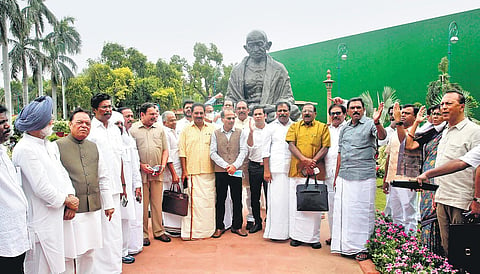A dysfunctional Parliament is a collective failure
At an all-party meeting called by the NDA government on the eve of the first budget session of Prime Minister Narendra Modi’s government in 2015, Modi underlined the collective responsibility of government and opposition in the smooth functioning of Parliament. The then parliamentary affairs minister, Venkaiah Naidu, said no issue couldn’t be resolved if approached with an open mind. He emphasised the spirit of cooperation for the effective running of Parliament. The relations between the government and the opposition over time have ruptured, and parliamentary work has reached a standstill. Issues of public concern the Members of Parliament are expected to raise are the biggest casualty.
Parliament has two key functions—making laws and scrutinising the government’s functioning. The latter has become so contentious that it has led to a stalemate. The executive should not shy away from allowing the opposition to hold the government accountable for its actions. That is one of the primary reasons why Parliament exists. The opposition has a constitutionally guaranteed right to scrutinise the government’s actions. Debates, discussions, questions and motions are the opposition’s tools to raise issues of public concern. That said, the opposition is also duty-bound to raise issues by following set procedures. There is a Business Advisory Committee (BAC) in both Houses. It decides the House business. It is where the government and the opposition fix the duration and slots for taking up mutually-agreed items.
There is no reason why the government and the opposition cannot agree on the day’s agenda in the BAC. They always did so in the past. But the political strain between the present ruling and opposition parties is affecting parliamentary work. The spirit of cooperation is missing. Instead of reaching out to the suspended parliamentarians on a 50-hour relay day-night fast, parliamentary affairs minister Prahlad Joshi mocked them by asking if they had come to Parliament for ‘charcha’ or ‘chicken’, referring to the meals served to the protestors. Senior BJP leader Rajnath Singh once said that democracy could not survive without the opposition. The government and opposition leaders need to resolve the impasse in the interest of democracy.

